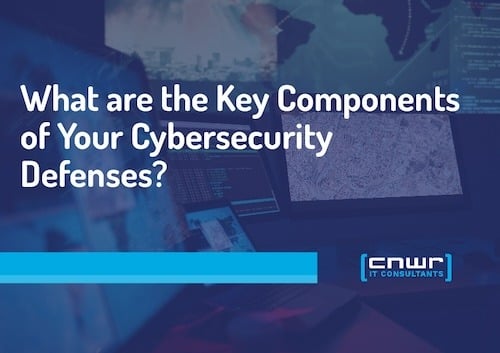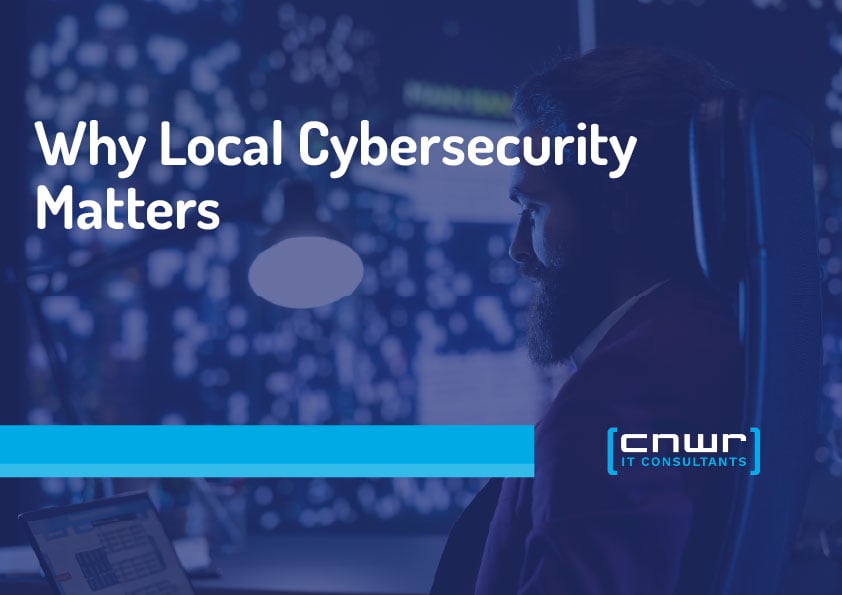Building a robust cybersecurity posture begins with comprehensive employee training. Cybersecurity training is essential in safeguarding sensitive data and preventing potential breaches. Once your team is equipped with the necessary skills and knowledge, you will have a formidable line of defense against cyber threats that extends far beyond the capabilities of your firewall.
Understanding the Importance of Cybersecurity Training
With the increasing cyber threats targeting businesses globally, investing in security awareness is non-negotiable. Cybersecurity training equips employees with the knowledge to recognize and mitigate potential threats like phishing emails and malware, safeguarding sensitive information from data breaches. By fostering a culture of cybersecurity awareness, organizations can proactively strengthen their defenses against evolving cyber risks. This foundational knowledge is crucial in minimizing vulnerabilities and enhancing overall information security.
Cybercriminals' constantly evolving tactics pose a significant risk to organizations of all sizes. These malicious activities can result in data breaches, financial losses, and damage to the company's reputation. It's crucial for businesses to understand the potential threats they face and invest in robust cybersecurity measures to safeguard their sensitive information and operations. Mitigation strategies such as regular security awareness training and incident response plans are essential to fortify defenses against cyber attacks.
How Cybersecurity Training Protects Your Company
Educated staff can recognize and mitigate security risks, reducing the likelihood of a data breach. Training instills security awareness, promotes safe online practices, and safeguards sensitive information. Once trained, your team can effectively respond to incidents like phishing emails or malware attacks with a well-trained workforce. Cybersecurity training is a vital defense mechanism, strengthening the company's overall security posture and resilience against evolving cyber threats.
Elements of an Effective Cybersecurity Training Program
Effective cybersecurity training programs should encompass diverse elements. Identifying specific training areas tailored to the organization's vulnerabilities is key, as you should customize your content based on employee roles to ensure relevance and engagement.
Interactive modules on password security, phishing awareness, and safe social media practices are fundamental. A comprehensive cybersecurity training program combines varied elements to fortify the workforce against cyber threats and uphold the organization's security posture.
Identifying Target Areas for Training
One key aspect of cybersecurity training is identifying target areas for tailored instruction. By conducting thorough assessments, organizations can pinpoint specific vulnerabilities within their workforce. This targeted approach ensures that employees receive training in areas where they need it most, optimizing the program's effectiveness.
Identifying these target areas, from recognizing phishing emails to understanding social engineering tactics, allows for a more strategic and impactful cybersecurity training initiative. This proactive strategy enhances overall security awareness and helps mitigate potential threats within the organization.
Customizing Training to Employee Roles
Tailoring cybersecurity training to specific employee roles is crucial for effective learning outcomes. By customizing content to align with job responsibilities, employees can better understand how cybersecurity practices apply directly to their daily tasks.
For instance, IT staff may require in-depth training on network security essentials, while non-technical employees may benefit more from phishing attack simulations and password security tips. Adapted training ensures relevancy and increases engagement, empowering employees to apply cybersecurity best practices in their respective roles.
Core Topics for Employee Cybersecurity Training
Understanding how to create strong passwords, identify phishing emails, and safely navigate social media can significantly enhance your workforce's security awareness. By covering these critical areas, employees can better protect sensitive information and mitigate potential threats in the ever-evolving landscape of cyber threats.
Best Password Security Practices
Creating strong passwords is essential for safeguarding sensitive information. Combining letters, numbers, and special characters is always wise. To mitigate potential threats, avoid reusing passwords across accounts.
You should encourage employees to update their passwords regularly to enhance cybersecurity awareness. Educational modules on password security empower employees to recognize the importance of protecting critical information. By keeping your passwords fresh, organizations can fortify their defense against cyber threats by adopting password security best practices.
Recognizing and Responding to Phishing Attacks
Phishing attacks are common cyber threats where malicious actors impersonate trustworthy entities to deceive individuals into revealing sensitive information. By mimicking reputable sources like banks or companies, phishing emails aim to trick recipients into clicking on malicious links or providing confidential data.
To combat this, cybersecurity training educates employees on recognizing such deceptive tactics, emphasizing the importance of verifying sender legitimacy, avoiding clicking suspicious links, and promptly reporting suspicious emails. Instilling this training equips staff with skills to effectively identify and mitigate potential threats.
Secure Use of Social Media
Employees must grasp the significance of secure social media practices in the realm of cybersecurity. Risks such as social engineering and data breaches loom large, making it imperative to impart knowledge on recognizing scams and securing personal information online.
You must train your staff to recognize the difference between secure websites and potential threats and understand the pitfalls of oversharing sensitive data. With websites, apps, and overall technology constantly shifting, continuous education on social media security is vital to fortifying an organization's defense mechanisms.
Advanced Training Topics for IT Staff
Network Security Essentials and Incident Response and Management are crucial advanced training topics for IT staff. Understanding network vulnerabilities and having a structured approach to handling cyber incidents are paramount. Incident response involves swift action to mitigate damage in case of a data breach.
Additionally, staying updated on emerging cyber threats is vital for IT personnel to safeguard company resources effectively. Ongoing training on these advanced topics ensures IT staff can adeptly protect against evolving cyber threats.
Network Security Essentials
Ensuring network security essentials is crucial to safeguarding against cyber threats. Understanding the principles of firewalls, encryption, and secure configurations is fundamental.
Regular monitoring for unusual activities and updating patches are vital. Intrusion Detection Systems (IDS) and Intrusion Prevention Systems (IPS) play significant roles in detecting and responding to potential security breaches.
Training on network security measures like VPN usage and multi-factor authentication enhances overall defense mechanisms. Continuous education on emerging threats in the network landscape is imperative for a robust cybersecurity posture.
Incident Response and Management
The ability to promptly and effectively address cybersecurity incidents is paramount in mitigating potential threats and minimizing the impact of data breaches. Training employees on incident response protocols equips them with the necessary skills to efficiently identify, contain, and resolve security breaches.
Creating a Culture of Security Awareness
Your team must foster a mindset among your employees that prioritizes cybersecurity and understands the potential risks. Building a security-aware culture requires top-down commitment from leadership and active participation from the entire workforce.
This can be achieved through regular cybersecurity awareness training programs, open communication channels for reporting security incidents and promoting a sense of shared responsibility for protecting sensitive information. By embedding cybersecurity awareness into the organizational culture, employees become the first line of defense against cyber threats.
Regular Updates and Refreshers on Cybersecurity
It is important to provide regular updates and refreshers on cybersecurity to maintain a high level of security awareness among employees. This includes ongoing security awareness training sessions that cover emerging risks, new attack techniques, and updated best practices. The training should be accessible to employees at their own pace, allowing them to revisit the material as needed.
Additionally, organizations should offer additional training resources, such as online courses or workshops, to further enhance employees' knowledge and skills. By keeping cybersecurity knowledge current, employees can stay vigilant and adapt to evolving cyber threats.
Measuring the Effectiveness of Your Cybersecurity Training
Establishing clear benchmarks and objectives for cybersecurity awareness within your organization is paramount to ensuring the efficacy of your cybersecurity training program. By defining specific goals, you can gauge the impact of the training on employees' understanding of security protocols and their ability to identify potential threats.
Additionally, employing various tools and techniques, such as simulated phishing attacks and knowledge assessments, can provide valuable insights into the level of cybersecurity knowledge across different departments.
Regularly assessing the effectiveness of your training efforts allows you to make informed decisions on areas that may require additional focus or supplementary training modules. Based on these evaluations, monitoring and adjusting your cybersecurity training program can significantly enhance your company's overall security posture.
Setting Benchmarks and Goals for Cybersecurity Awareness
Setting benchmarks and goals for cybersecurity awareness is crucial in evaluating the effectiveness of training programs and measuring progress. Benchmarks provide a baseline against which the organization's security awareness can be measured. This can include metrics such as the percentage of employees who successfully complete training, the number of reported security incidents, or the level of adherence to security policies.
Goals help organizations define what they want to achieve with their security awareness initiatives. These goals can be specific, measurable, achievable, relevant, and time-bound (SMART). By setting benchmarks and goals, organizations can track their progress and make data-driven decisions to enhance their cybersecurity awareness efforts.
Tools and Techniques for Assessing Employee Cybersecurity Knowledge
One effective tool for assessing employee cybersecurity knowledge is conducting simulated phishing emails. Organizations can evaluate their responses and awareness levels by sending out fake phishing emails to employees. Another useful technique is utilizing cybersecurity quizzes or assessments to test employees' understanding of security best practices.
Additionally, monitoring employees' completion rates and scores on cybersecurity training modules provides valuable insights into their grasp of the material. Implementing regular cybersecurity drills to simulate real-world cyber threats can also help assess employees' readiness to handle potential security incidents. Leveraging these tools and techniques can give organizations a comprehensive understanding of their employees' cybersecurity knowledge and identify areas requiring additional training or reinforcement.
Overcoming Common Challenges in Cybersecurity Training
Implementing effective cybersecurity training can be challenging due to various factors. One common challenge is engaging employees and maintaining their interest throughout the training program. Organizations can address this by using interactive and gamified training modules, incorporating real-world examples, and promoting a culture of continuous learning. Another challenge is catering to employees with varied skill levels.
Tailored training programs can be developed to meet the specific needs of different employee groups, ensuring that everyone receives the necessary knowledge and skills to mitigate cybersecurity challenges.
Engaging Employees in Ongoing Training Efforts
Organizations can promote engagement by providing interactive and engaging training materials, incorporating real-life scenarios and case studies, and offering incentives for active participation. Continuous learning should be encouraged through periodic refresher courses, updates on emerging threats, and the sharing of success stories of employees who have effectively prevented cyber incidents.
Addressing Varied Skill Levels Among Staff
Addressing varied skill levels among staff is crucial to ensure that cybersecurity training is effective for all employees. Organizations should tailor training programs to meet the specific needs of different employee groups.
This can involve providing different levels of training based on employees' existing knowledge and skills, offering advanced courses for IT and security professionals, and providing additional support and resources for employees who require extra assistance.
By addressing the weak links in your staff’s cyber security knowledge, you can strengthen your overall cyber security and be much less likely to experience a mistake that can let a hacker into your business.
Want help creating a Cyber-safe Work Culture?
If you’re ready to protect your business from cyberattacks, partner with us at CNWR. Our IT consultants can not only reinforce your cybersecurity but also possess the knowledge to make your IT run smoother overall.
Talk to one of our world-class specialists today! Contact us here.

-1.jpg)
![[CTA] Cybersecurity Training for Employees- Building a Security-Aware Culture](https://cnwr.com/hs-fs/hubfs/%5BCTA%5D%20Cybersecurity%20Training%20for%20Employees-%20Building%20a%20Security-Aware%20Culture.jpg?width=709&height=283&name=%5BCTA%5D%20Cybersecurity%20Training%20for%20Employees-%20Building%20a%20Security-Aware%20Culture.jpg)


